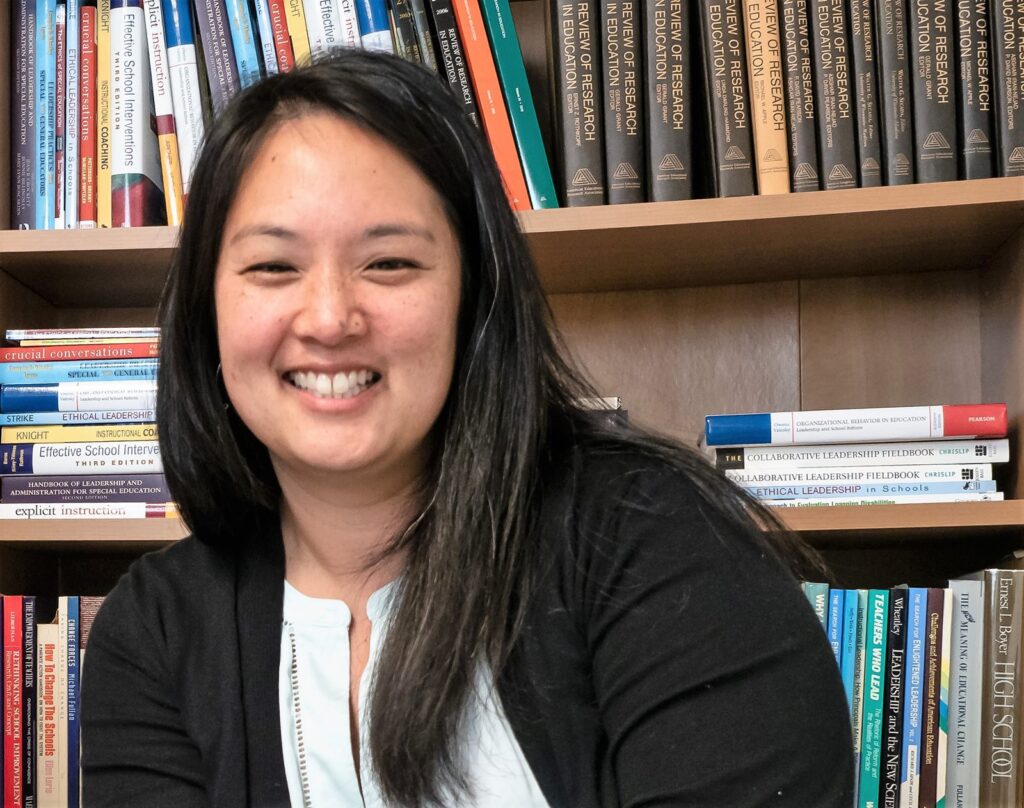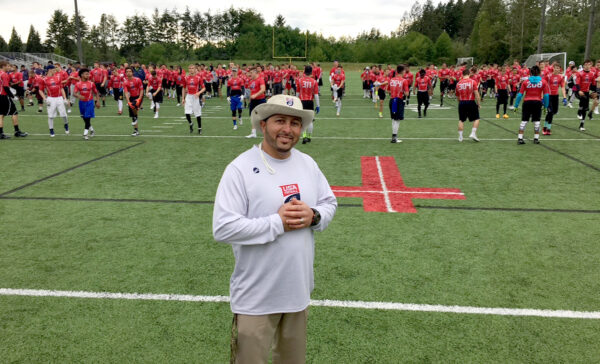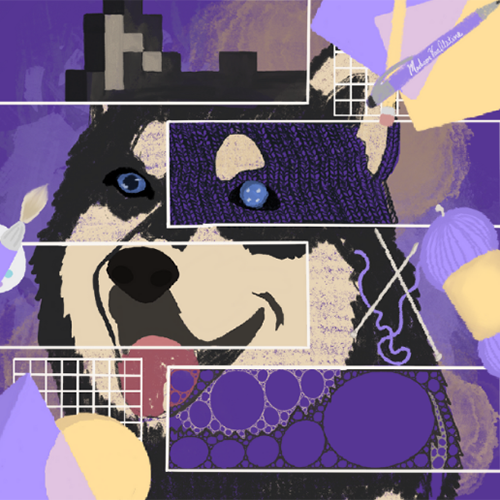By Lisa Craze
Twenty-three years ago, as a middle-school science teacher in South San Jose, California, Carrie Tzou was committed to helping all her students succeed. But she faced a serious challenge to ensuring they could all flourish in her classroom.

“Half my students were from tech families — and the other half were from families working in migrant fields and so missed months of classroom instruction each year,” said the associate professor in UW Bothell’s School of Educational Studies (SES).
Determined to find a way to meet every child’s learning needs, Tzou decided to pursue a doctorate in education with a focus on creating equity in education.
Research in action
One of the things Tzou learned in her advanced studies is the importance of family engagement in learning. She has also since learned that libraries can be leaders in fostering learning through the family structure because libraries are already so connected to the communities they serve.
Now, Tzou is not just on the faculty at UW Bothell, she also is serving as the director of the Goodlad Institute for Education Renewal. As part of her work, she is a member of a team that is turning education research into learning innovations.
Tzou will be part of an event titled The Changing Role of Librarians and Libraries in STEAM Education on Tuesday, May 7, at the Edmonds Public Library from 6 to 8 p.m. She also will moderate a panel that features Allison Hintz and Anthony Smith, both associate professors and associate deans at the SES; Mie-Mie Wu, children’s librarian with the King County Library System; and Ashley Braun, digital and family learning librarian for Seattle Public Libraries.
The event is part of Campus Research Connections, a quarterly event hosted by UW Bothell’s Office of Research to provide community members the opportunity to hear from and talk with UW Bothell faculty and other experts whose work is making a positive difference in the region.
Rethinking educational practices
The assembled experts will explore new ways in which libraries and schools can reimagine partnerships to better support students and their families — especially in science, technology, engineering, art and math (STEAM).
Children’s librarian Mie-Mie Wu said she used to think that science and math experts were the only ones who could handle questions in those fields. But after successful collaborations with educators, she’s re-thought her approach to presenting information.
“Our abilities to notice, wonder, ask, seek out and puzzle through are the very practices scientists and mathematicians use,” said Wu. “Consequently, I’ve reshaped how I think about and develop programs for children.”
Ashley Braun is one of Carrie Tzou’s recent collaborators. For the past three years, they have worked together on a National Science Foundation-funded project called Tech Tales. It combines robotics with storytelling and e-textiles to create dioramas of family experiences. As an example, one diorama, created by a family that moved to the United States from Ethiopia, used robotics to tell the story of traditional goat racing events in their homeland.
“I’ve been fortunate to see the evolution of most of this work, and the most exciting part to me is how storytelling has become the focal point,” said Braun. She describes this way of using STEAM education as “such a powerful way to learn and innovate.”
A new way forward
Details of the design of the dioramas and other projects will be shared at the event — and should help spark discussion about the ways diverse communities in particular can use STEAM learning with schools and libraries to deepen family connections.
Collaboration is a key component of innovations created by librarians and educators, says Tzou, and UW Bothell is no stranger to fostering innovation through partnerships.
Tzou called it the perfect place to do this kind of work “because it’s small enough that everybody knows everybody — and everyone is excited to collaborate.”


